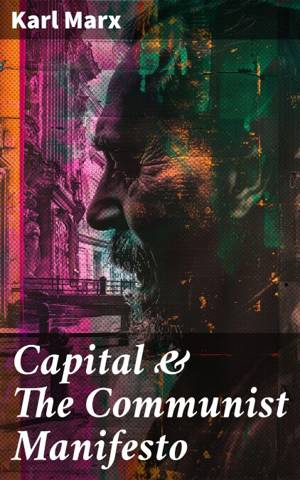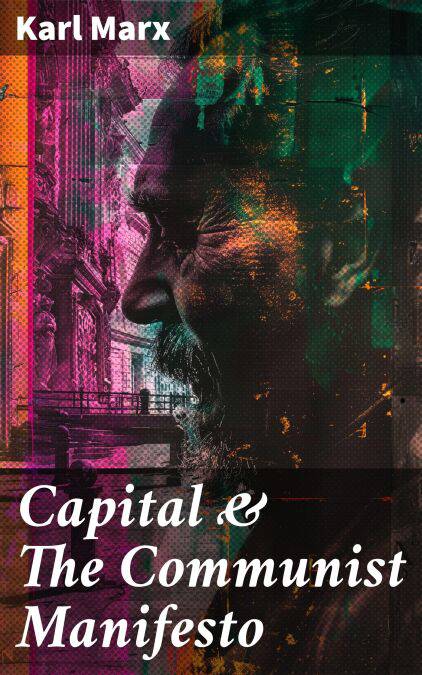
- Afhalen na 1 uur in een winkel met voorraad
- Gratis thuislevering in België vanaf € 30
- Ruim aanbod met 7 miljoen producten
- Afhalen na 1 uur in een winkel met voorraad
- Gratis thuislevering in België vanaf € 30
- Ruim aanbod met 7 miljoen producten
Zoeken
Capital & The Communist Manifesto E-BOOK
Including Two Important Precursors to Capital (Wage-Labour and Capital & Wages, Price and Profit)
Karl Marx
E-book | Engels
€ 1,99
+ 1 punten
Omschrijving
Karl Marx's seminal works, "Capital" and "The Communist Manifesto," are cornerstones of social and economic theory that challenge the foundations of capitalist society. "Capital" offers a rigorous analysis of political economy, examining the relationships between labor, commodity, and capital with a deft blend of philosophical inquiry and empirical observation. In contrast, "The Communist Manifesto," co-authored with Friedrich Engels, presents a passionate call to arms for the proletariat, advocating for class struggle as the catalyst for social change. Together, these texts not only articulate the mechanics of capitalism but also envision an alternative society rooted in communal ownership and equality. Born in 1818 in Trier, Prussia, Karl Marx's life experiences'Äîincluding his engagement with the vibrant intellectual climate of Europe, exposure to the injustices of industrialization, and his journalistic endeavors'Äîshaped his revolutionary ideas. His historical materialist approach reflects a critique of capitalism that was both deeply personal and widely resonant in an era marked by rapid change, social upheaval, and the emergence of new class dynamics. These works are essential reading for anyone seeking to understand modern socio-economic structures and continue to inspire debate in contemporary discourse. Readers from diverse backgrounds will find profound insights into the nature of power, inequality, and the possibility of transformation, making these texts not only historical artifacts but also relevant guides for future social movements.
Specificaties
Betrokkenen
- Auteur(s):
- Uitgeverij:
Inhoud
- Aantal bladzijden:
- 2156
- Taal:
- Engels
Eigenschappen
- Productcode (EAN):
- 8596547669364
- Verschijningsdatum:
- 16/11/2023
- Uitvoering:
- E-book
- Beveiligd met:
- Digital watermarking
- Formaat:
- ePub

Alleen bij Standaard Boekhandel
+ 1 punten op je klantenkaart van Standaard Boekhandel
Beoordelingen
We publiceren alleen reviews die voldoen aan de voorwaarden voor reviews. Bekijk onze voorwaarden voor reviews.











